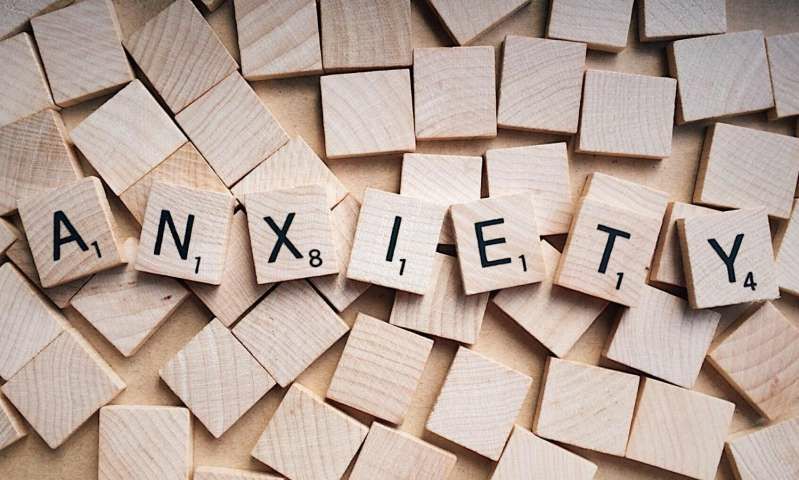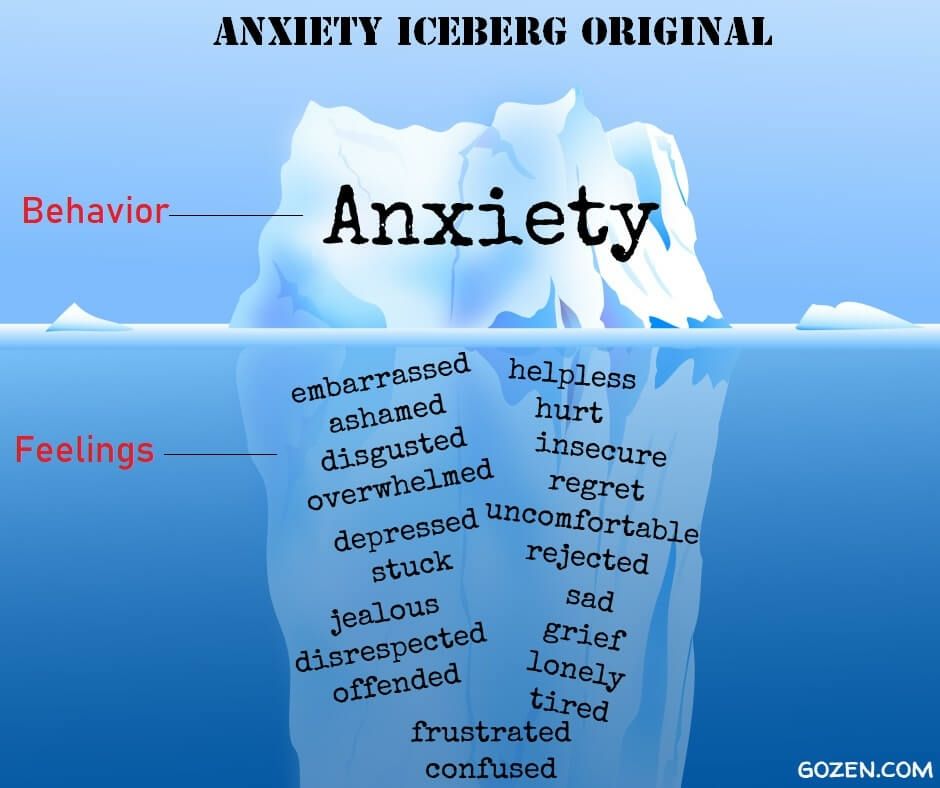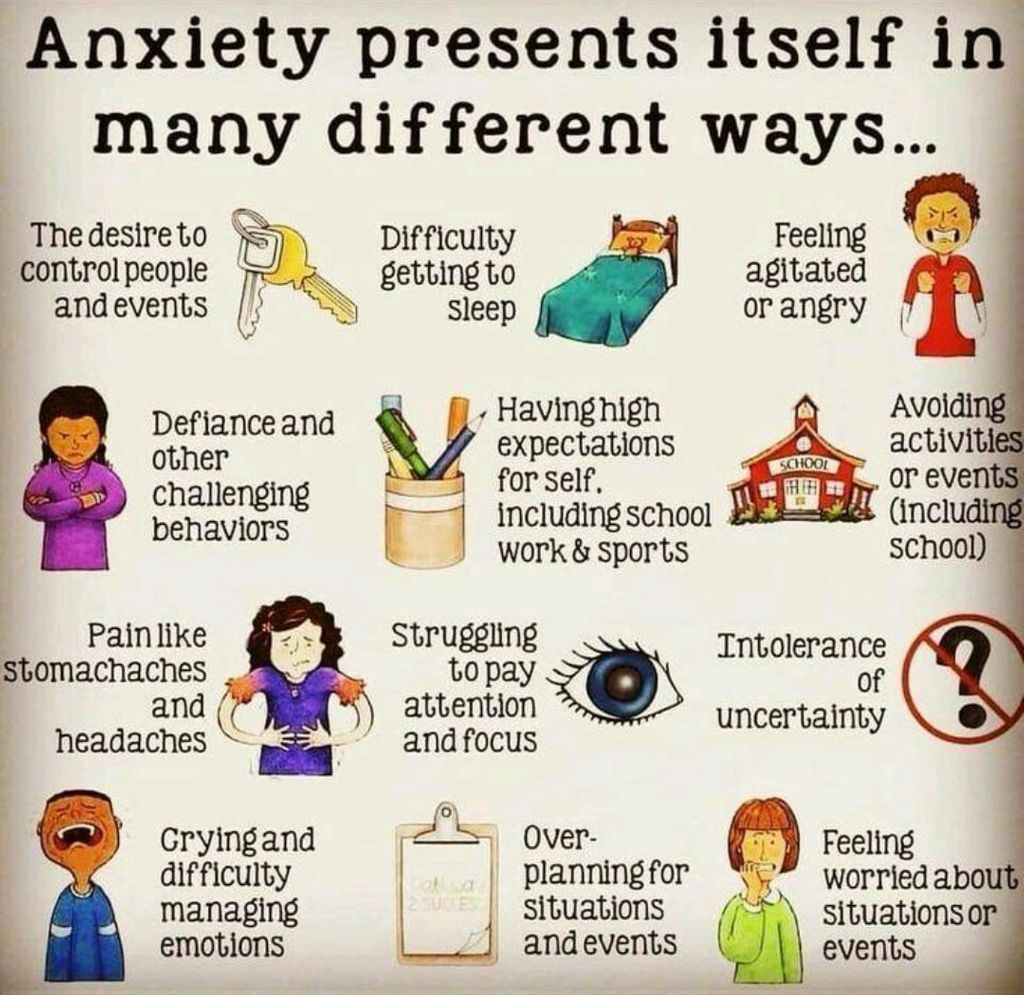How To Overcome Anxiety?
Sep 17, 2019 • 103 views

Anxiety - Image source:images
Introduction
Worries and fears are a certain and even at times an important part of our lives. It's the fear of failing and lacking behind in life, that trigger us to keep grinding and hustling. Feeling these emotions within a certain limit is healthy for one's life but the problem begins when these emotions become way too strong.
If your worrying habit is becoming perennial, excessive and incoherent, making you lose control over it, it may not be a worrying emotion anymore, it may be anxiety.
Related: stress and anxiety difference
What is anxiety?
The continuous, excessive and uncontrollable feelings of fear or worry including some physical symptoms like palpitations, sweating etc is termed as anxiety. The initial stages of anxiety(mild anxiety) are not so draining and emotionally confronting but the severe anxiety, that results from persistent feelings of uncontrollable fear and worry can be very draining.
Read more about anxiety: what is anxiety

Anxiety iceberg original - Image source: images
Types of anxiety
Before you can overcome anxiety, you must know about the various types of anxiety to figure out which is the one making you suffer.
There are five major types of anxiety disorders:
1) General Anxiety Disorders (GAD): GAD is characterized by excessive anxiety, fear and worries about daily events. GAD is irrational and has no valid or realistic reason for the immense worry. People suffering from GAD always expect the worst to happen.
2) Obsessive Compulsive Disorder ( OCD): OCD is a type of mental illness where the patient suffers from obsessions or compulsive thoughts sometimes even both. OCD affects the personal as well as the professional life of the sufferer. In OCD the thoughts and actions are beyond the control of the person.
3) Panic Disorders : Panic disorder is defined as the condition of recurrent and unexpected panic attacks every now and then. Panic disorders include excessive fear, trembling, sweating, pounding heart etc.
4) PostTraumatic Stress Disorder: PTSD is an aftermath of a catastrophic event. It can happen either by experiencing or witnessing a traumatic event. The symptoms of PTSD are apparent within one month of the event but sometimes it can take years before there are any visible symptoms of PTSD.
5) Social Anxiety Disorder (Social phobia) : Social phobia is the most common type of anxiety disorder. Social phobia is defined as the excessive fear and discomfort of being in a social situation. The worry is too much to handle resulting in symptoms like dizziness, muscle tension, rapid heartbeat etc.
How to overcome anxiety?

Symptoms of anxiety - Image source: images
Anxiety is one of the most prevailing issues in recent times. 21st century has witnessed the massive widespread of mental health issues and anxiety disorders are the number one mental illness. Almost 4% of the world population suffers from anxiety disorders. Thus, it becomes necessary to find out solutions to this problem. Here are a few steps that can help you overcome anxiety:
1) Face your fears: It might seem to be the most difficult task to do but it is the most needed. Every time you deny to face your fears, they build a stronger grip on you, leading to more fear and anxiety. The more you run away, the more they chase you.
Related: healthy ways to face your fears
2) Exercise: Exercising can be a relieving experience. It helps in distracting your mind from worries and low moods by releasing chemicals in the brain that trigger calm and positive feelings.

Exercise - Image source: images
3) Connect to God: Being religious or spiritual can help you reduce stress. Connecting to God makes you believe that you have a bigger power in your favour that can heal you from the worries of life.
4) Channelise your emotions: One of the most important steps is to channelise your emotions. Sharing what you are going through can make you less stressed. If you are too shy to speak out, pen down your thoughts or scream them out loud.
5) Say no to caffeine: Caffeine stimulates the same response in our body as the worrisome situations do. It makes us overreact, irritated and frustrated even in normal situations. Caffeine can worsen already existing anxiety disorders.
Read more about the effects of caffeine: say no to caffeine
It's time to overcome anxiety before it can overpower us.
A healthy mind is a basic necessity in life, which enables us to carry out all other functions accurately.
Anxiety is a thin stream of fear trickling through the mind. If encouraged, it cuts a channel into which all other thoughts are drained.-- Arthur Somers Roche
